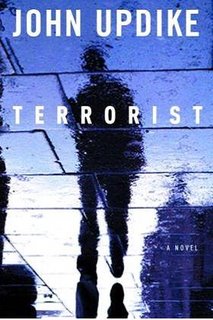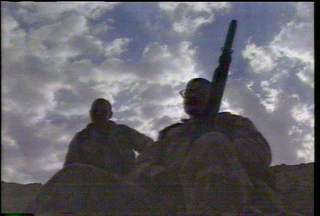
Just finished reading Updike’s much talked about novel ‘Terrorist’. Were it not for Updike’s mastery of language, the novel would have been a bigger disappointment. The content was quite a let down; an oversimplification of one of the most complex issues arising out of the regionalism and religious fundamentalism that has swamped our world. To start with, Updike ventured on unknown grounds, the workings of an Arab-American teenage mind. Apparently, Updike likes doing this once in a while, which accounts for novels such as ‘The Coup’ and ‘The Witches of Eastwick’; an ‘imaginative leap’ he calls it, that often brings about revelations on human behavior and its consequent impact on the immediate society. This ‘leap’, however, was one he couldn’t span in the “Terrorist”, despite the Koranic verses interspersed throughout the novel.
Updike’s works have always mirrored American society and its psyche, but in this novel his effort at doing so appears contrived and plastic. Ahmad, the main protagonist, does not come alive like Updike’s other protagonists do. The 18 year old Ahmad’s progression from a high-achieving, half- Egyptian, half-Irish American teenager into a tunnel-blowing terrorist in New Jersey is far-fetched. Which is not surprising because even his two mentors, one who he seeks out and the other who he avoids, a Yemeni Imam and a high school guidance counselor are just as pretentious and come across highly unpalatable; a stretch to ones imagination.
"Write what you know”, is what Updike said in one of his recent interviews, but in his most recent novel, that’s the very axiom he appears to have disregarded. His ‘leap of imagination’ this time, was into a subject extremely complex, remote, and alien to him, and this disconnect reflects all too clearly in his rendition of characters and their interactions. Updike’s “Terrorist” leaves the reader cheated of an Updikian experience; ‘a rant minus the wisdom’, as a Georgetown professor describes it.







